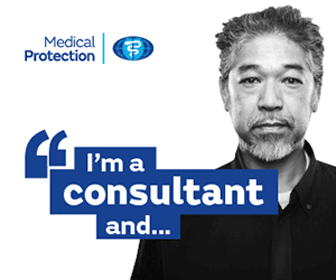- Bulletin: Autumn 2025
- Training and careers
Top tips on navigating the Primary FRCA
Advice and guidance
Author: Dr Coralie Carle, Consultant in Anaesthesia and Intensive Care Medicine; Chair of the Primary FRCA
I’ve been involved in education and training throughout my whole career. I’m currently serving as an ICM Training Programme Director for Dual/Triple residents and a Foundation Training Programme Director.
I’ve been a Primary FRCA Examiner for seven years and have been actively involved in the Primary MCQ exam, including roles such as Deputy Chair and Chair of the MCQ Core Group. I am currently Chair of the Primary FRCA.
With all this experience, I’ve regularly provided exam guidance to FRCA candidates over the years. In this article, I’m keen to share this advice with a broader audience, including any International Medical Graduates who are preparing for the Primary FRCA. I hope you find this advice and guidance helpful. Please consider this article to be a pre-emptive ‘exam guidance interview'!
Revision – logistics
Preparing for the Primary FRCA is a marathon and not a sprint. You'll need four to six months of dedicated, focused study. I recommend the use of a monthly view calendar to help you meticulously plan your revision timetable. By adding all your clinical shifts and important personal commitments to the calendar, you can calculate the hours of studying you can fit into each week. The next step is to cohort the Primary FRCA syllabus points into manageable, hour-long chunks. You can now compare your available study time with the hours required to cover the syllabus. Not only have you provided yourself with a weekly revision target, you have also familiarised yourself with the syllabus and so now know exactly what you need to learn.
In addition to your new revision timetable, consider attending a revision course. This will give you a break from independent study but also allow you to gauge your progress against your peers. Next, see if your trust will allow a week of ‘private study’ as it is a golden opportunity for undisturbed revision. You can also consider using a week of annual leave for yet another period of concentrated study – passing the exam first time makes this sacrifice worthwhile. Finally, book the day of the exam as professional leave and put in a ‘not on call request’ for the few days leading up to the exam.
Revision – techniques
Take a moment to reflect on your own learning style. How do you actually absorb and retain information? Understanding this is key to making your study time effective. However, please remember that learning something for the first time is distinct from later revising it. For me, active methods are far superior to passive reading. I still vividly remember the pharmacology and physiology PONV mind map I had taped to the back of my study door. Mind maps, diagrams, and drawing things out really helped cement concepts for me. Regardless of your learning style, what matters most is making sure that you fully understand the topic. Verbalise your knowledge as much as possible and practise explaining key concepts to others.
UK guidelines
For international doctors, a significant hurdle can be the volume and nuances of UK guidelines. These are critical, not just for the exam, but for our day-to-day practice. Useful resources to be familiar with are the Royal College of Anaesthetists (RCoA), the Association of Anaesthetists (AoA) and the Difficult Airway Society (DAS) Guidelines. Also review the Advanced Life Support Guidelines (ALS, ATLS / ETLS, APLS).
Primary written
While honing your single best answer (SBA) technique is important, please don’t solely rely upon practice questions. A rigorous process is applied to the writing, editing, and finalisation of the SBAs used in the exam. These questions are designed to test your applied knowledge and understanding and not your SBA answering technique. Your core focus must be on syllabus-based revision. This emphasis is particularly pertinent given that approximately half of the questions in each paper will be new and the rest won’t have been selected to run recently.
It‘s important to note that there are no 'trick' questions. Read the stem of the question thoroughly, then formulate your answer based on your understanding before reviewing the five provided options. Once you have a conceived answer, carefully consider the options and select the one that best matches your reasoned conclusion.
Primary OSCE / SOE
Having passed the written examination, you’ll possess the requisite core knowledge. You now have to translate that knowledge into a format ready for the oral examinations – the OSCE (Objective Structured Clinical Examination) and SOE (Structured Oral Examination).
Viva practice is useful here, but it must only be used to polish your technique and isn’t a substitute for core knowledge. It’s an interesting observation that candidates who feel the 'luckiest' with their SOE/OSCE examination questions are those who have engaged in the most comprehensive and deep-seated revision.
On the day of the OSCE / SOE:
- Attire – present yourself in smart yet comfortable professional clothing (analogous to typical hospital work attire, excluding scrubs).
- Communication – structure your verbal answers in a logical and articulate manner. Classify when you can! Draw clear and concise diagrams – explaining as you draw.
- Examiner intent – examiners are committed to creating a supportive environment and genuinely want you to pass. Don’t be disconcerted if you don’t know an answer – encyclopaedic knowledge is not expected. Importantly, do not allow a gap in knowledge to negatively impact your performance on subsequent SOE questions or the next OSCE station.
Finally, I strongly encourage all candidates to familiarise themselves thoroughly with the valuable resources available on the RCoA website. These are invaluable tools for understanding the examination format and expectations:
Good luck! Although if you prepare thoroughly, you won’t need luck!



